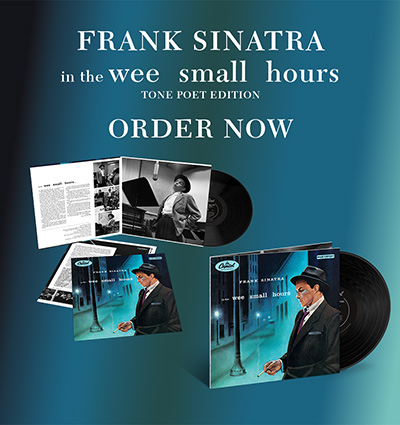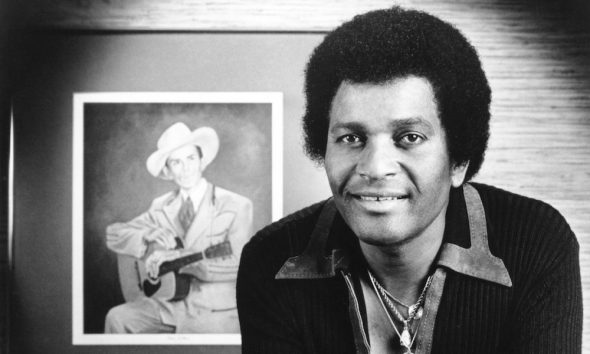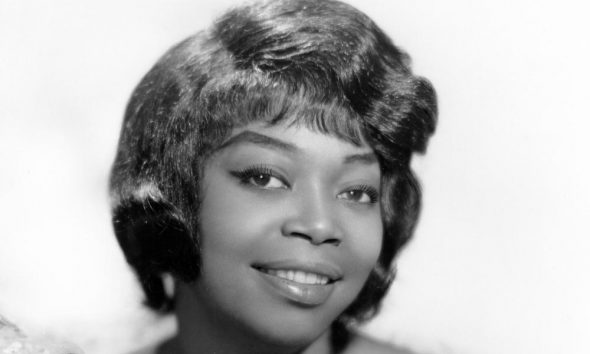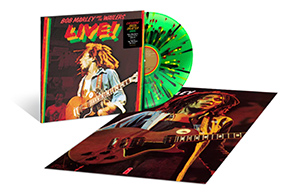Life’s Still Fantastic For Aqua, As They Reflect On The 25th Anniversary Of ‘Aquarium’
Aqua members René Dif, Lene Nystrøm, and Søren Rasted talk about revisiting their debut album, the lasting power of ‘Barbie Girl,’ and what set them apart in the 90s pop landscape and today.
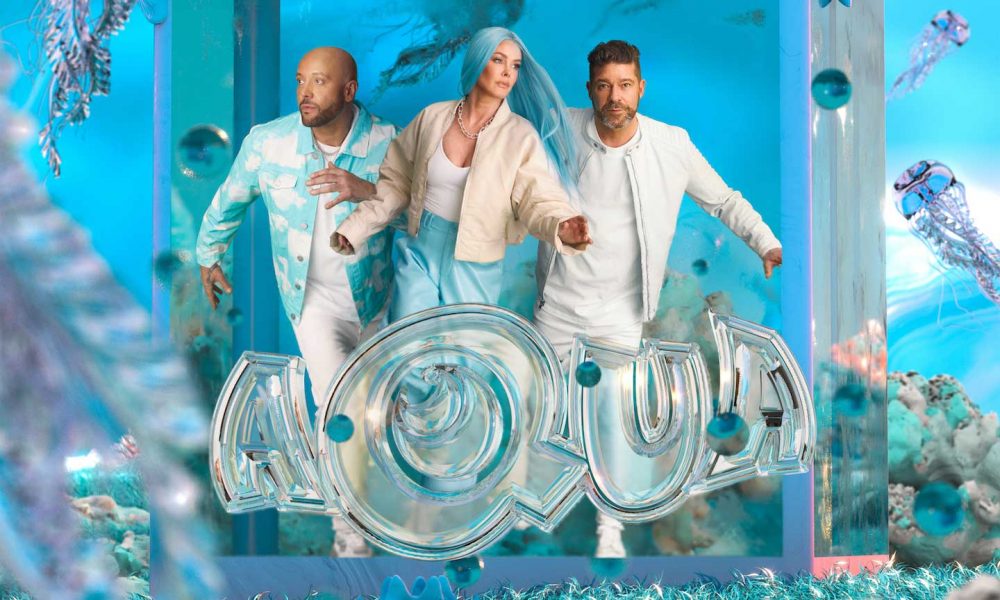
With its unmistakable chorus, pitched-up vocals, and irreverent lyrics, Aqua’s “Barbie Girl” was an unabashed earworm that took the charts by storm in 1997. But what many missed upon first listen were the song’s true satirical intentions and social commentary, proving that a “life in plastic” wasn’t so fantastic after all.
Shop the 25th Anniversary edition of Aquarium on vinyl, out now.
Twenty-five years later, with 33 million albums sold, an infamous Mattel lawsuit, over one billion views on the music video, and a robust touring schedule prove that Aqua was onto something when they unleashed the perfect Euro-pop anthem upon the world, and we’re still dancing along to it.
To celebrate, the Danish-Norwegian pop group just released a 25th-anniversary edition of their debut album, Aquarium, this month and continue their touring plans throughout Europe. While “Barbie Girl” won’t be making an appearance in the new Barbie movie – it’s a bit too “on the nose” – Aqua is sure to reap the benefits of a renewed interest in everyone’s favorite plastic protagonist.
We caught up with the band during a brief pit-stop in their hometown of Copenhagen, Denmark, where we spoke with Aqua members René Dif, Lene Nystrøm, and Søren Rasted about revisiting their debut album, the lasting power of “Barbie Girl” and what set them apart in the 90s pop landscape and today.
This interview has been edited and condensed for length.
First off, congratulations on the 25th anniversary of Aquarium.
René Dif: Thank you.
What was it like to revisit the album 25 years later and go through track by track? Did anything surprise you? Were you like, ‘Oh, we were genius for doing that’?
Søren Rasted: When you’re our age, it doesn’t seem like 25 years, but let’s not get down that road.
Lene Nystrøm: A few weeks ago, we did some TikTok interviews – short little stories – and we spoke about each song on the album. We figured out that every song has something a little bit naughty in them, or the video has something naughty in them, that we wouldn’t be able to pull that off today at all.
Pop music has always been able to sneak in innuendo, and “Barbie Girl” has such biting social commentary. It’s the perfect Trojan horse, you’re embedding these messages, but everyone’s distracted by the upbeat music and hyper-color visuals. Was that intentionally done throughout the whole album or just with “Barbie Girl?”
René: The context should always be fun, humoristic, and well-written. But I don’t think we had that in the back of our mind that it couldn’t be. We had no boundaries for what we could do at that time. It was probably a little bit naive when you think about it, but that’s how it turned out.
Søren: Denmark is such a small country, and we hadn’t experienced any successes before. So I don’t think we could imagine going up as far, and that would be such a popular song and album. But we knew that we had hits, but there’s a thin line between being huge in Denmark, Norway, and Sweden and the rest of the world. We knew that the lyrics were a little bit daring, especially for “Barbie Girl.”
Lene: We didn’t add that much thought to it, so the reaction from the world (and especially America) was quite shocking to us. Because in Scandinavia (you probably have it as well), we work so much in irony and have an ironic distance from so much we do in life. That’s the same with our music.
Søren: It was hard coming to America to explain the irony. And then the [Mattel] lawsuit came up. And then we had to explain everything, every single line.
Lene: And we had to watch what we were saying in interviews and TV shows.
I can’t believe that litigation lasted five years.
Søren: Yeah, but it was good for publicity
When it started to play on MTV, what was that like for you guys? Did you feel any pressure?
René: I think it was pretty surreal because, I mean, not to categorize it, but most people would like to see themselves on MTV or other big channels. But it was so far away; it was so unreachable that when I saw it, it blew my mind.
Søren: When “Barbie Girl” came out, it was huge in America, but it was huge everywhere. And I think we were also afraid that we would be a one-hit wonder, that it would just be “Barbie Girl, “ but in England, it was different.
Lene: And the rest of the world.
Søren: When “Doctor Jones” came out as the second single, it became No.1, and “Turn Back Time” also became a No.1. It was a relief because I was a bit afraid that we’d end up being a one-hit-wonder.
Lene: We were always a little bit sad. Because the whole world was pulling on us, wanted us to be in their country to do promotion. And in America, you have to be there. And you have to work an album out. Because it’s so huge, and every state has its own way of doing things. So we always felt a little bit of pity that there wasn’t time to work the next single. So that’s one of the reasons why it was only “Barbie Girl” [in the States].
Let’s talk about the rest of Aquarium, because there’s so much going on sonically. You have “Heat of the Night,” which has a little salsa flair, “Good Morning” has a reggae-style rhythm, and then you have “My Oh My,” just stacked with hits. When you were going into this album – and with a debut, you’re often trying to encapsulate everything your group is about – did you want to make sure that the album reflected all your different influences and styles across the board?
Søren: We had 15 songs that could have ended up on Aquarium, and we chose 11. “Turn Back Time” was originally not going to make it onto the album because they thought it was too much of a black horse. So in that sense, we worked hard not to make everything sound alike. We put a great deal of production value into the songs. So we co-produced the songs with different producers to get that variety of sound.
The fact that you wrote and produced most of your own music set Aqua apart from many of your peers at that time. Was it really important to the group to maintain creative control?
Lene: It couldn’t have worked any other way because Soren and Claus are the best songwriters I know. They write the best pop music I’ve ever been able to sing. We had additional producers on some of the tracks, but except for that, we’ve been trying to co-write with other people. And it’s very difficult for other people to understand our world and our sound, so that’s why it’s always been our thing.
Søren: It’s true; Lena and Rene were very much aware of how we looked and the decisions we made on stage. So from the very beginning, we were very much ourselves in the process. And we thought that was great. But when we came out and we had success, we noticed that we were pretty much the only band that decided everything ourselves.
René: Everything from how we looked, and the music, and styling, and everything around Aqua, we decided, and we did ourselves. Compared to many other bands from that time, where they were put together, they got songs from outside and had nothing to say. So we feel pretty privileged that also, 25 years later, we did everything ourselves.
Aqua also seemed to arrive at this particular time in the States, where grunge was seeing its way out, and we were entering this great sort of pop music era. Was something similar happening in Europe?
Søren: America was different. Because we had a Euro dance thing in Europe already, but when we entered America, it was with the Backstreet Boys and bands like that. And that was a new genre at that time, a new era for pop music, so that was our lucky strike as well.
I feel we’re at another crest right now, where pop music is taking a page from dance and house music again. Is that something that’s influencing you?
Søren: I mean, the process of writing is one thing, the process of producing is another. I don’t think it would be a good idea if we tried to redo the sound of Aquarium again.
Lene: You have to do what feels right to now, and don’t look back.
Søren: So, as soon as Rene and Lene start singing on the tracks, it becomes an Aqua song. They both have very distinct vocals, and that’s…
Lene: That’s our force.
Søren: That being said, it’s also harder today to have that duet thing that we had 25 years ago. Because you don’t have that angry rapper and singer dynamic.
I read that there was a new album in the works. What’s it like being back in the studio and songwriting again? What does Aqua sound like in 2022?
Lene: Well, we were in the studio a lot during COVID, and the good thing about being in the studio now, is that there’s no pressure. But with having no pressure, it also takes a long time for us to finish anything [laughs]. We don’t have the immediate urge to release anything. Because if we do, we want to be 110 percent happy with what we release. And we have families now, and we have other things to do also. And we’re touring a lot.
Aqua performs a lot of festival gigs; it seems like you’re always on the road. You’ve mentioned in previous interviews that your shows attract fans of all ages and that everyone understands the “concept of Aqua.” What is the concept of Aqua?
Lene: The concept is there is no concept. It’s a self-made living organism with three people that love each other, share a love for the music, and are still hungry for the music. Every time you go on stage, you have to convince people and give people a good experience. And also, from the ego side, you get that feeling back from the audience because it’s a give-and-take situation.
Do you feel like the band has an advantage being on the road so much and being in front of live audiences? Whereas other groups take a long break and try to come back together?
Lene: Even though you have a break, it takes a little bit of time to get that self-confidence back, for yourself, and also with the band and the crew and everything. I believe that we all have a self-exhibition button that we kind of push and become kind of superhero-ish when we go on stage because, at least, I’m a little bit shy in real life.
Do fans still come up to you and talk about their “I remember where I was when I first heard “Barbie Girl”’ type of moments?
René: When you meet the fans at concerts, in many cases, they’ll say, “You were the soundtrack to my youth,” or that time when they were going through in their life or at school or university. So they’re very loyal fans. I think it was like that at the start for us too. All of a sudden, there were a lot of fans that stuck together. And some of them have seen more than 60 concerts. It’s unbelievable.
Søren: If you remember the things you heard when you were between 12 and 20, those are the songs that stick with you forever.
The visuals of “Barbie Girl” seem very California or “American Dream” inspired. Was that type of imagery something you’d see in Denmark as well?
Lene: I have the feeling that Baywatch kind of brought that on. And it has stuck, but it’s definitely an American thing, but it’s all over here as well.
Søren: When we spoke to the video directors who did “My Oh My” and “Barbie Girl,” we introduced ourselves as a cartoonish band that would love to make cartoonish stories, little small stories, and have that cartoonish universe because our lyrics were like that. “My Oh My” is about a prince and a princess. “Doctor Jones is about Indiana Jones, and so on. So it speaks to that kind of naive fairytale.
What’s next for Aqua this year? You have new music you’re working on and a packed touring schedule; what are you most excited about in the next year or so?
Lene: We have a couple of countries more to visit. We’re going to Italy tonight and Canada next weekend. But then there’s also family time, we’ve been touring most of the spring and most of the summer, so it’s time to have a break. I think we’re going to have a big bang of a party to celebrate the 25th anniversary.
Søren: And for the past five years, we’ve had a cameraman shooting lots of our concerts and stuff, so we have a lot of material that we might look at and see if we do something. We have lots of things that we could do, but we haven’t done it finally yet.



